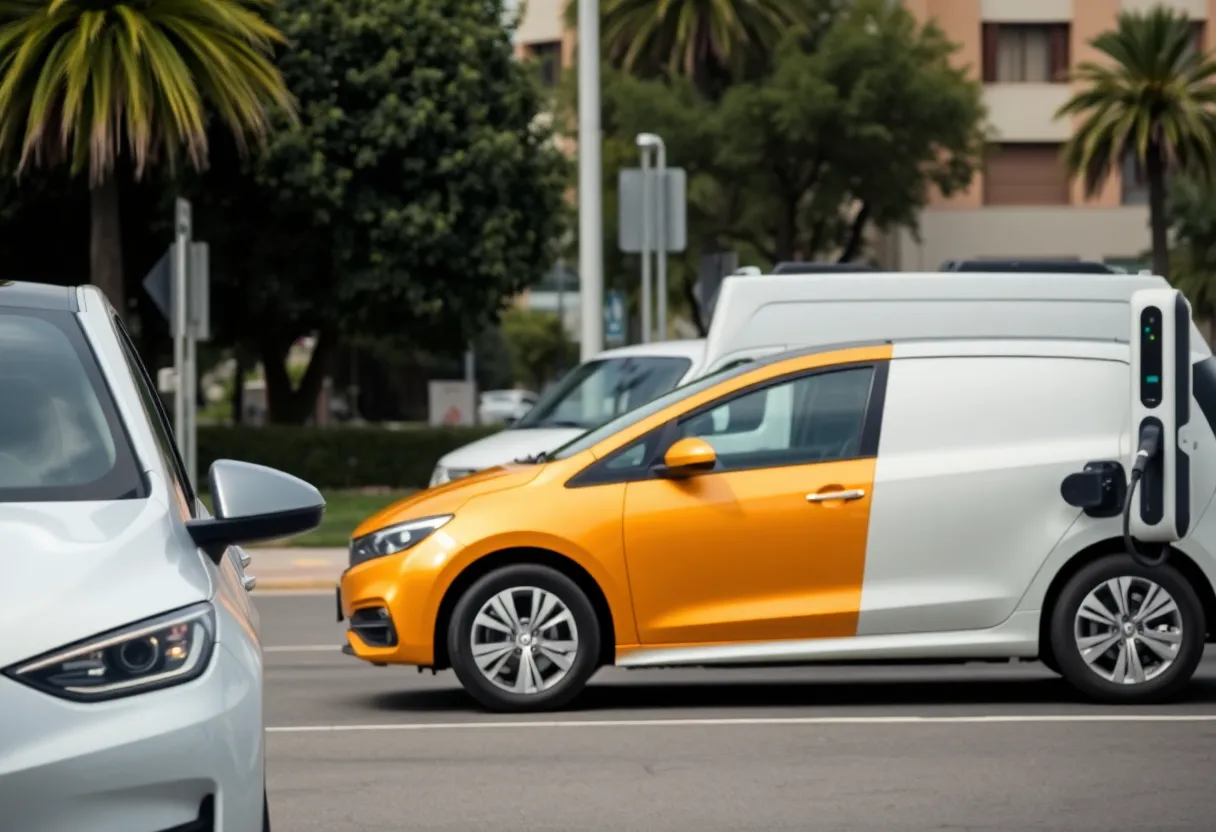News Summary
The US Senate has voted 51-44 to repeal California’s planned ban on gasoline-powered cars by 2035, undermining the state’s aggressive climate initiatives. This legislative move, backed by Republicans and one Democratic senator, not only affects California but also impacts 11 other states aiming to implement similar vehicle emissions standards. Governor Gavin Newsom has condemned the decision, warning of increased pollution and foreign competition in the automotive sector. The impending legal battles and the debate over state versus federal powers signify a critical point in environmental policymaking.
California—a state renowned for its ambitious environmental policies—has found itself at the center of a significant legislative decision. The US Senate has voted 51-44 to repeal California’s planned ban on gasoline-powered cars and other vehicles by 2035. This measure is expected to be signed into law by President Donald Trump, effectively blocking California’s efforts to transition to electric vehicles and adhere to stricter emissions standards.
The Senate’s decision comes as a reaction to a waiver issued by the Environmental Protection Agency (EPA) during the tenure of former President Joe Biden. This waiver granted California the authority to set tougher emissions regulations compared to federal requirements. California’s initiative to outlaw new gasoline-only vehicle sales was part of a broader strategy to reduce greenhouse gas emissions and promote cleaner alternatives.
With California’s ruling now facing repeal, the future of these environmental efforts looks increasingly uncertain. The repeal not only impacts California but also has repercussions for at least 11 other states that intended to follow California’s lead in terms of vehicle emissions standards. Collectively, these states account for approximately 40% of the U.S. auto market, illustrating the wide-reaching implications of the Senate’s vote.
Senator Elissa Slotkin from Michigan was the sole Democrat to join Republicans in blocking California’s program. This resolution signals a substantial setback for California’s aggressive push towards electric vehicle sales. Governor Gavin Newsom condemned the Senate vote, suggesting it would aid foreign competitors like China in the automotive technology sector and increase pollution levels in the country.
The Advanced Clean Cars II rule mandated that by next year, 35% of new vehicles sold at California dealerships must be zero-emission vehicles or plug-in hybrids. By the year 2035, the plan aimed to eliminate the sale of gasoline-only vehicles entirely. The repeal of these regulations could hinder advancements toward achieving California’s environmental goals, potentially reversing anticipated health benefits valued at approximately $13 billion. These benefits included the prevention of 1,200 premature deaths resulting from improved air quality.
The actions taken by Senate Republicans were based on concerns regarding California’s strict regulations. They argue that such measures could adversely affect the American auto industry by restricting consumer choices and overburdening the national energy grid. Democrats, in contrast, warn that this move poses risks to both state authority and public health protections against pollution. Furthermore, they have pointed out that these decisions could set a precedent for future congressional challenges to state regulations on various issues.
In addition to the repeal of California’s vehicle regulations, the Senate approved four other resolutions that seek to counter California’s clean-air rules concerning heavy-duty vehicles. This consolidated legislative effort appears to challenge not just California’s leadership in environmental policy but raises questions about the balance of power between state and federal governance.
California has historically sought legal waivers more than 100 times from the EPA, allowing it to implement stringent emissions regulations. The anticipated legal battle following the repeal reflects California’s intention to contest the decision in court, asserting that Congress’s move to revoke its emissions standards is unjust and unlawful. Many observers have criticized the use of the Congressional Review Act to counter California’s clean air regulations, suggesting that it represents a misuse of legislative power.
The Senate’s decision not only affects California’s environmental future but also raises critical discussions around state rights and the overarching impact of federal legislation on local governance. With the future of regulations surrounding emissions now in question, the repercussions of this vote will likely be felt across the automotive industry and environmental policy discussions for years to come.
Deeper Dive: News & Info About This Topic
- New York Times
- Wikipedia: Environmental Policy
- Los Angeles Times
- Google Search: California gas car ban
- AP News
- Google Scholar: California emissions regulations
- Bloomberg
- Encyclopedia Britannica: Vehicle Emissions
- CBS News
- Google News: California gasoline ban







